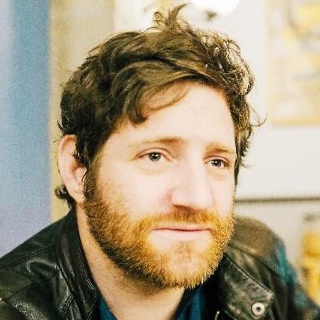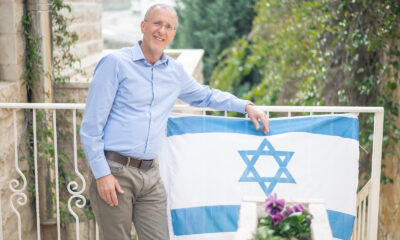
OpEds

Diaspora just as critical in Israel’s power era
A few years ago, an important shift occurred in the distribution of world Jewry. Israel became the country with the world’s largest Jewish population, taking over from the United States. As this demographic trend continues in Israel’s 75th year, it will soon have more Jews than the rest of the world combined. Such a situation hasn’t existed since before the destruction of the first Temple.
This heralds a new era in Jewish-Israel relations. For instance, some kinds of Jewish law are considered to be in effect when the majority of Jews live in the land. More than that, it has already started to reflect a change in the power relations between Israel and the diaspora. For most of the past 75 years, the diaspora tended to be the larger voice as it helped and supported Israel in its journey from establishment to fully fledged country. In the new era, Israel is likely to be the key driver of the global Jewish conversation.
As one looks back on 75 years of the birth of the state of Israel, just a few years after the horrors of the Holocaust, it’s remarkable how many insurmountable challenges have been overcome. Creating a viable state, building a modern economy, supporting aliya from Ethiopia, Yemen, and Russia, developing self-sufficiency in water, agriculture, health, and defence, and providing a robust democratic framework for a multicultural society have all been achieved (while having to handle numerous existential security risks).
These achievements shouldn’t be credited to Israel alone as they also belong to Jews in the diaspora who contributed time, money, political support, and military service to the creation of the state. South African Jewry has a particularly rich history in this regard, with our community sending more money to help establish Israel per capita than any other community in the world – in some cases, selling precious silver family heirlooms to help generate cash. South African Jews were also key to the establishment of the Israeli air force. South Africans served in various capacities to support Israel during wartime. Sadly, many paid the ultimate price.
This 75th anniversary presents us with an incredible potential vision for our next chapter. Imagine a future where Jews safely live in their land, practise their faith, live their values, and engage with Jewish and non-Jewish communities around the world. Israel, already a hi-tech, fully developed economy, is able to expand these opportunities across its population sectors, creating new pathways to success and the conditions to promote peace further with its neighbours. Access to new, scalable technologies, an ethic of tikkun olam, and some good-old-fashioned chutzpah, ensures that Jews globally are able to tackle some of humanity’s greatest concerns in areas such as food security, medicine, and water provision.
As Jews living in Africa, we know this vision is particularly pertinent on the continent. Theodor Herzl himself wrote, “Once I have witnessed the redemption of the Jews, my people, I wish also to assist in the redemption of the Africans.” South African Jews, wherever they may live, are well placed to be a bridge to bring Israeli solutions to African problems.
But we dare not be complacent, both the Jewish kingdom ruled by David and Solomon, and the state created the Maccabean revolt each lasted only about 80 years as unified political entities. We shouldn’t take the stability and unity of Israel for granted. The collapse of these entities was a prelude to division, civil war, and the eventual exile of Jews to far-flung corners of the world and the loss of our sovereignty in the holy land. History warns us that it was internal divisions, economic, political, and religious, that were as important as external enemies in the demise of these polities. Therefore, it reminds us that an independent Jewish nation is as precious as it is fragile, and it’s up to all of the Jewish world to play our part in maintaining it.
We need to be vigilant to guard Jewish unity and solidarity as we continue to debate political and economic issues and how our Jewish values underpin the society we’ve built over the decades. We simply don’t have the luxury of being divided in our international climate.
The invasion of Ukraine by Russia has shown the need – should we require a reminder – of a Jewish state that can provide a place of refuge for Jews around the world at a moment’s notice. This continues to be under threat by heavily armed Islamist extremist groups that exist on all of Israel’s borders, making use of rockets and conventional armaments aimed at cities, and acts of terrorism against civilians.
Iran, a human rights violating theocracy that’s especially loathing of women and minorities, continues its work to create a nuclear weapon nearby. This, while some in the West continue to drive a campaign of delegitimisation and boycotts against Israel in the media and civil society. This results in growing antisemitic threats against diaspora communities around the world.
Without full security and confronting and defeating these evils, we’ll never be able to have true peace with all of Israel’s neighbours.
South African Jewry has an important role to play here as well. Our country has been the host and staging ground for the pernicious establishment of the apartheid analogy, which has been exported globally. Playing a part in the process of debunking this lie is something that we are uniquely positioned to assist with. There’s no reason why South Africa and Israel shouldn’t be on friendly, co-operative terms. As the African National Congress and its fellow travellers continue to slide into political irrelevance, we should take the opportunity to bring our two societies closer in whatever way we can.
As we celebrate 75 years with Israel as South African Jewry, our connection gives us strength and a place amongst global Jewry to continue playing a part in the next unfolding chapter of the Jewish people. Am Yisrael Chai.
- Benji Shulman is director of public policy at the South African Zionist Federation.










